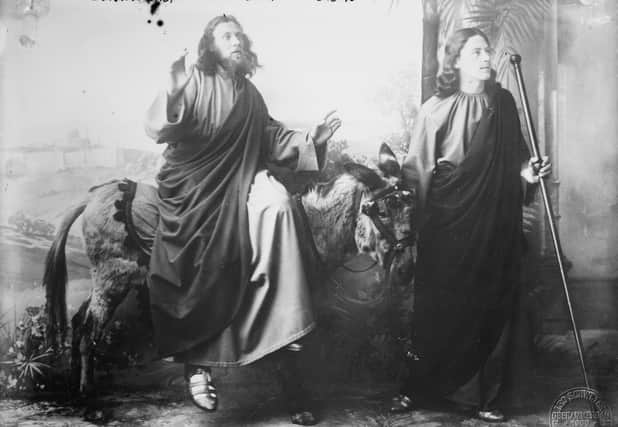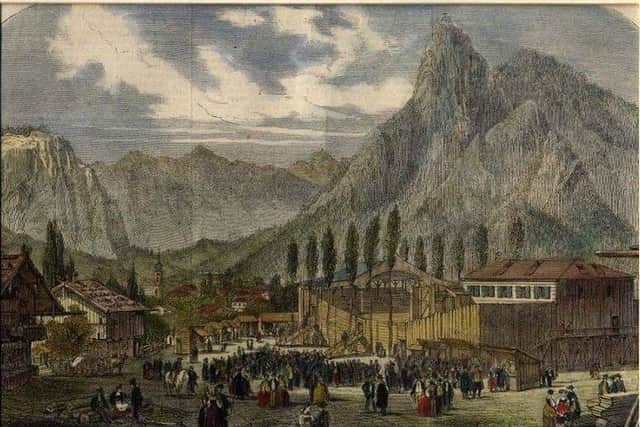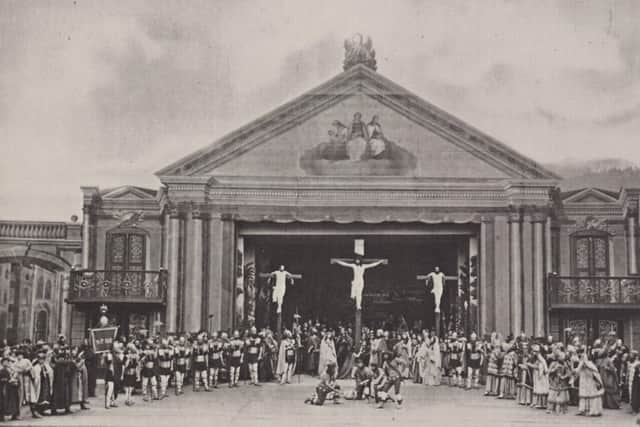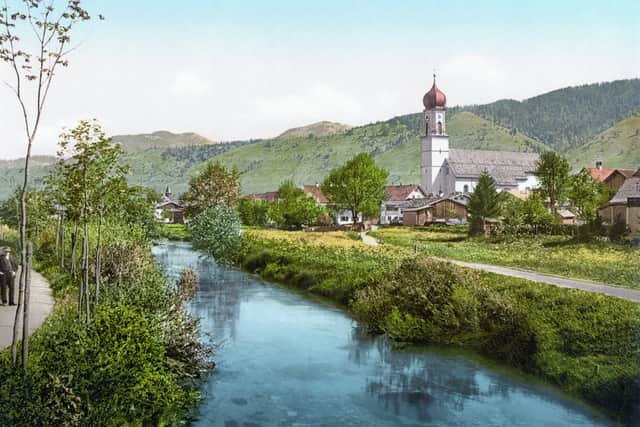Postponed historic Passion Play goes back to a vow made in 1633


“The 42nd Oberammergau Passion Play will be postponed due to the current situation caused by the corona pandemic.”
In the Bavarian district of Germany, beside the Ammer River and framed by the Ammergau Alps, Oberammergau is a small town known for its woodcarvings, its NATO School and its internationally renowned 10-yearly Passion Play.
Advertisement
Hide AdAdvertisement
Hide AdThe organisers of the Passion Play summarised the historical significance of the postponement, explaining that the event “goes back to a vow made in 1633. At that time, the people of Oberammergau vowed to perform the suffering, death and resurrection of Christ, if no one died of the plague anymore.


“The people of Oberammergau still want to fulfil this vow. Therefore the plans to perform the Passion Play in 2022 are currently beginning.”
Held in the ‘decimal year’ (ending with a zero) I attended a performance in 1990, one of the most vivid and moving experiences of my lifetime, and indeed, I had toyed with the thought of returning this year.
There would have been 103 performances (five per week) starting in mid-May with an expected 450,000 visitors from around the globe paying between €30 to €180 for a ticket.
Advertisement
Hide AdAdvertisement
Hide AdThe enormous production has been running since 1634 except for two cancellations and a postponement.


Nearly half of the 5,500 residents of today’s Oberammergau are involved with the show - actors, musicians, front of house, backstage and looking after the horses, sheep, goats, cows and doves that add to the often intensely dramatic scenes.
The other half of the townsfolk run the restaurants, shops, hotels, B&Bs and farmsteads where many of the visitors stay, if they’re lucky.
The nearest accommodation I could get in 1990 was St. Anton am Arlberg in the Austrian Tirol.
Advertisement
Hide AdAdvertisement
Hide AdParticipants in the production must have been born in Oberammergau or have lived there for 20 years.


It’s not unusual for up to four generations of the same family to be taking part in the same run of plays, which can involve around 500 children on stage at the same time.
In the 17th century, passion plays were held in many parts of Europe, often performed on carts in the street.
They re-enacted Christ’s last days, from his entry into Jerusalem to his trial, crucifixion, resurrection and ascension.
Advertisement
Hide AdAdvertisement
Hide AdIn the bigger and more elaborate productions, when scene one ended the cart trundled off to another part of the town or city and scene two arrived, and so on!
They were the ‘poor man’s Bible’ enabling even the most illiterate become familiar with Bible stories.
But Oberammergau’s is the only play with its origins in a collective vow to God which has run, almost without a break, for approaching four centuries. This unique double-accolade brought the town a UNESCO World Heritage award.
It’s quite likely that passion plays were already common events but a document in Oberammergau’s archives records “the first decades of the 17th century went by in peaceful calm…but then followed the Thirty Years’ War with all its hardships from 1618 until 1648. As early as 1631, infectious diseases spread in Bavaria. This village was spared by dutiful vigilance until the church festival in 1632, when a man brought the plague into the village.”
Advertisement
Hide AdAdvertisement
Hide AdMore than 80 local folk died and almost every family lost loved ones.
“Faced with the great distress that the terrible illness inflicted upon the population,” the archive continues, “the leaders of the community came together and pledged to hold a passion tragedy once every ten years. From this day forward, not a single person perished, even though a great number of them still showed signs of the plague”.
They made the pledge in 1633 and the Passion Play was first performed at Pentecost in 1634, on a wooden stage that some say was built on plague-victims’ graves near the church.
Surviving documentation from the 1674 production shows that the play ran ‘completed smoothly’ with seating provided ‘for spectators standing close by.’
Advertisement
Hide AdAdvertisement
Hide AdFrom 1680 the date of the performance was changed to the beginning of each decade, by which time folk were coming from all over Germany to see substantial productions.
Paint and painters for the 1700 show’s scenery cost 19 guilders, ‘the gentlemen trumpeters’ got two guilders and 10 guilders went ‘to the actors for drink’!
There was no performance in 1770 when Maximilian III’s Clerical Council banned all passion plays and when another threat loomed in the 1800s the so-called ‘mad’ King Ludwig II of Bavaria protected it from those who wanted to close down the ‘harmful’ passion plays. (Some early productions were quite crude, with strings of black sausages used as props for the disembowelling of Judas Iscariot.)
Following WWI the play was postponed until 1922, and there was a special 300th anniversary show in 1934 attended by Adolf Hitler.
Advertisement
Hide AdAdvertisement
Hide AdThere were no performances in 1940 during WWII, just the second cancellation…until now.
Plans to perform the Passion Play in 2022 are already under way, for over 100 five-hour shows, several thousand participants, a 55-strong orchestra and a 100-strong choir.